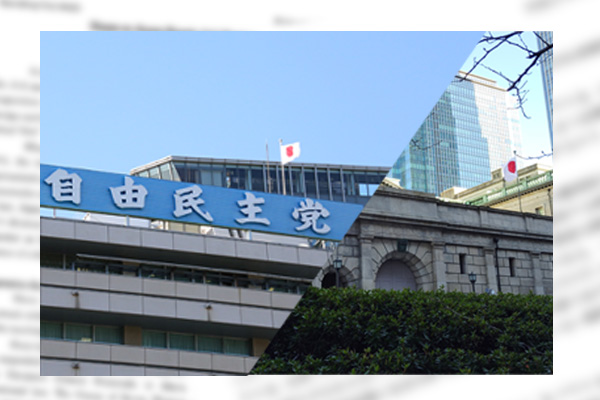As the schedule for the ruling Liberal Democratic Party’s presidential election has been fixed, an outline of major candidates’ policies has loomed. This essay focuses on and compares their macroeconomic policies. Macroeconomic policies, such as fiscal and monetary policies, are an important pillar that supports the economic foundation of a country, exerting significant impacts on people’s economic activities. As full pictures of the candidates’ macroeconomic policies are still uncertain, I would like to describe mainly their fiscal policy stances as far as I know.
Takaichi taking over Abe’s fiscal policy
Economic security minister Sanae Takaichi is taking over the aggressive fiscal policy of the late former Prime Minister Shinzo Abe, as recognized by herself and others. Aggressive fiscal policy refers to the basic position of not giving up on spending to support innovative technologies as a growth strategy even if massive budget deficits already exist. While increased demand is an important consequence of such spending, a demand expansion is not the sole purpose of spending.
In contrast, fiscal austerity is a position that aims to achieve a primary budget balance surplus (that refers to a situation where government spending is covered by tax and other revenue without depending on government bonds) as soon as possible in pursuit of a balanced budget. Under this position, the government may set a target year for achieving a primary budget balance surplus (the current target is fiscal 2025) and strive to reduce spending regardless of economic conditions.
Since 1998, Japan has been in a state of deflation due to a chronic shortage of demand. From the demand side, therefore, there will be no fiscal constraint until the price stability target of 2% in terms of the year-on-year rise in the consumer price index is achieved. However, there is a general condition for fiscal sustainability, which is that the nominal economic growth rate (increase in tax revenues) exceeds the nominal interest rate on government bonds (government debt services) as a basic trend. At present, Japan satisfies this condition, too.
As the depreciation of the yen has surely contributed to recent price hikes, it is understandable that the Bank of Japan has been gradually raising interest rates in order to achieve price stability, while paying attention to the real economy.
Ishiba and Kono criticize Abenomics
Former economic security minister Takayuki Kobayashi has stated that economic policy takes precedence over fiscal policy. This may mean that he now sides with aggressive fiscal policy. If so, I would have liked him to vow to achieve fiscal soundness through economic growth. However, there are some concerns about whether Kobayashi will be able to continue to steer economic policy according to this logic if he becomes prime minister. This is because Kobayashi belongs to a group very close to the Reiwa National Conference (commonly known as Reiwa Rincho), which advocates fiscal austerity and interest rate hikes.
As far as I know, former Environment Minister Shinjiro Koizumi has said very little about macroeconomic policy. His father, former Prime Minister Junichiro Koizumi, also made little mention of macroeconomic policy and enthusiastically pursued structural reforms such as the privatization of the postal service. However, supply-side policies such as structural reforms cannot overcome deflation.
Former Defense Minister Shigeru Ishiba and incumbent Digital Minister Taro Kono are strong yen advocates who believe that a strong yen is desirable for the Japanese economy, calling for raising interest rates to correct the yen’s depreciation. Both are critical of Abe’s economic policy, or Abenomics, and advocate the “normalization” of economic policy. However, the assessment of any economic policy depends on real economic conditions.
Etsuro Honda is a member of the Planning Committee of the Japan Institute for National Fundamentals and a former special adviser to the cabinet. He advised then Prime Minister Shinzo Abe for the success of Abenomics. He also served as Ambassador of Japan to Switzerland and Liechtenstein.


